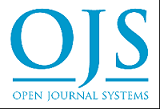Pre-marital HIV screening in Jayapura Regency: A phenomenological study
DOI:
https://doi.org/10.33024/minh.v7i7.496Keywords:
HIV Screening, Phenomenological Studies, PremaritalAbstract
Background: Premarital screening is a series of examinations that prospective bridal couples must undergo. Infectious disease screening is one of the important screening steps that prospective brides and grooms must carry out, including examination for hepatitis B, hepatitis C, sexually transmitted infections (STIs), and HIV-AIDS. Premarital HIV screening is carried out to prepare for a healthy and planned pregnancy and prevent HIV transmission in the family.
Purpose: To explore phenomenologically the efforts to implement premarital screening in Jayapura Regency
Method: The research approach is qualitative with a phenomenological research paradigm. Participants in this research were couples who were getting married, people in charge of the Infectious Disease Management program at the Community Health Center, and Persons in Charge of Infectious Disease Management at the Jayapura Regency Health Service. The sampling technique used a purposive sampling technique of 6 informants.
Result: This research produced 3 themes, namely: premarital HIV screening in perception, the urgency of implementing premarital HIV screening and factors influencing the implementation of premarital screening. Perceptions of premarital screening were obtained from informants' statements regarding the understanding and purpose of the examination. From several categories, 3 themes were obtained, one of which was policy. Policies are obtained from 9 categories and 2 sub-themes schematically.
Conclusion: The concept map resulting from the exploration of the premarital screening program in Jayapura Regency can be a reference or indicator in formulating a premarital screening program. Premarital screening program design can be carried out by analyzing the situation of need or urgency in Jayapura Regency.
Suggestion: Support or strong reasons based on data are needed so that this program can be a recommendation for stakeholders.
References
Anggraini, F. D., & Rizki, L. K. (2020). Sikap Remaja Usia Pranikah dan Kesiapan Puskesmas Dalam Implementasi Program Pemeriksaan Skrining HIV Pranikah. MIKIA: Mimbar Ilmiah Kesehatan Ibu dan Anak (Maternal and Neonatal Health Journal), 24-31. https://doi.org/10.36696/mikia.v4i1.8
Akoku, D. A., Tihnje, M. A., Tarh, E. O., Tarkang, E. E., & Mbu, R. E. (2018). Predictors of willingness to accept pre-marital HIV testing and intention to sero-sort marital partners; risks and consequences: Findings from a population-based study in Cameroon. PLOS ONE, 13(12), e0208890. https://doi.org/10.1371/journal.pone.0208890
Alkalbani, A., Alharrasi, M., Achura, S., Al Badi, A., Al Rumhi, A., Alqassabi, K., Almamari, R., & Alomari, O. (2022). Factors Affecting the willingness to undertake premarital screening test among prospective marital individuals. SAGE open nursing, 8, 23779608221078156. https://doi.org/10.1177/23779608221078156
Al-Kindi, R. M., Kannekanti, S., Natarajan, J., Shakman, L., Al-Azri, Z., & Al-Kalbani, N. I. (2019). Awareness and Attitude Towards the Premarital Screening Programme Among High School Students in Muscat, Oman. Sultan Qaboos University Medical Journal [SQUMJ], 19(3), 217. https://doi.org/10.18295/squmj.2019.19.03.007
Al-Shafai, M., Al-Romaihi, A., Al-Hajri, N., Islam, N., & Adawi, K. (2022). Knowledge and Perception of and Attitude toward a Premarital Screening Program in Qatar: A Cross-Sectional Study. International Journal of Environmental Research and Public Health, 19(7), 4418. https://doi.org/10.3390/ijerph19074418
Amalia, R., & Siswantara, P. (2018). Efektivitas Penyuluhan Kesehatan Reproduksi pada Calon Pengantin di Puskesmas Pucang Sewu Surabaya. Jurnal Biometrika Dan Kependudukan, 7(1), 29. https://doi.org/10.20473/jbk.v7i1.2018.29-38
Balebu, D. W., Labuan, A., Tongko, M., & Sattu, M. (2019). Hubungan Pemanfaatan Posyandu Prakonsepsi dengan Status Gizi Wanita Prakonsepsi di Desa Lokus Stunting Kabupaten Banggai. Jurnal Kesmas Untika Luwuk: Public Health Journal, 10(1), 12–19. https://doi.org/10.51888/phj.v10i1.4
Godongwana, M., Myburgh, N., Adedini, S. A., Cutland, C., & Radebe, N. (2021). Knowledge and attitudes towards maternal immunization: perspectives from pregnant and non-pregnant mothers, their partners, mothers, healthcare providers, community and leaders in a selected urban setting in South Africa. Heliyon, 7(1), e05926. https://doi.org/10.1016/j.heliyon.2021.e05926
Hakim, A. R. (2021). Urgensi Premarital Check Up sebagai Syarat Pra Pernikahan. Equivalent: Jurnal Ilmiah Sosial Teknik, 3(1), 11–26. https://doi.org/10.59261/jequi.v3i1.31
Hanoon, B., Khalf, S., & Khalaf, I. (2021). Premarital Screening Program in Al-Nuaman Teaching Hospital. Iraqi Journal of Medical Sciences, 19(2), 147–151. https://doi.org/10.22578/IJMS.19.2.3
Klausen, S. M. (2019). Reproductive Health, Fertility Control, and Childbirth in Africa. In Oxford Research Encyclopedia of African History.
Manakandan, S. K., & Sutan, R. (2017). Expanding the Role of Pre-Marital HIV Screening: Way Forward for Zero New Infection. Open Journal of Obstetrics and Gynecology, 07(01), 71–79. https://doi.org/10.4236/ojog.2017.71008
Munawaroh, L., & Walisongo, U. (2019). Tes Kesehatan Sebagai Syarat Pra Nikah (Studi UU Pernikahan di Kuwait). Jurnal Pemikiran Hukum Dan Hukum Islam, 10(1), 99–120. http://journal.stainkudus.ac.id/index.php/yudisia/index
Nurhadi, N. (2018). Undang-Undang No. 1 Tahun 1974 Tentang Pernikahan (Perkawinan) di Tinjau dari Maqashid Syariah. UIR Law Review, 2(2), 414. https://doi.org/10.25299/uirlrev.2018.vol2(02).1841
Nurrachmi, I., & Himayasari, N. D. (2020). Pro Dan Kontra Sertifikasi Pernikahan. Tahkim (Jurnal Peradaban Dan Hukum Islam), 3(1). https://doi.org/10.29313/tahkim.v3i1.5618
Paratmanitya, Y., Helmyati, S., Nurdiati, D. S., Lewis, E. C., & Hadi, H. (2021). Assessing preconception nutrition readiness among women of reproductive age in Bantul, Indonesia: findings from baseline data analysis of a cluster randomized trial. Jurnal Gizi Dan Dietetik Indonesia (Indonesian Journal of Nutrition and Dietetics), 8(2), 68. https://doi.org/10.21927/ijnd.2020.8(2).68-79
Puspitaningrum, D., Indrawati, N. D., Purwanti, I. A., Maghfiroh, H., & Alifta, A. (2020). Peningkatan Pemahaman Bidan Koordinator Tentang Standar Operating Prosedur Premarital Skrining di Puskesmas Sekota Semarang. Jurnal Pengabdian Masyarakat Kebidanan, 2(1), 45. https://doi.org/10.26714/jpmk.v2i1.5371
Riezzo, I., Neri, M., Bello, S., Pomara, C., & Turillazzi, E. (2016). Italian law on medically assisted reproduction: do women’s autonomy and health matter?. BMC Women's Health, 16, 1-7.
Syafi’i, A., Hidayat, Y., & Setiadi, S. (2021). Kursus pra nikah menurut peraturan direktur jendral bimbingan masyarakat islam nomor DJ. II/542 tahun 2013 dalam perspektif Maqashid Syari’ah. Al-Mashalih (Journal of Islamic Law), 2(1), 37-37.
Wati, A. T. (2020). Management Analysis Of The Premarital Counseling and Health Screening Program In Kediri. Journal for Quality in Public Health, 3(2), 678–690. https://doi.org/10.30994/jqph.v3i2.120
World Health Organization. (2017). Sexual health and its linkages to reproductive health: an operational approach. Received from: https://www.who.int/publications/i/item/978924151288
Yulivantina, E. V., Gunarmi, G., & Mufdlilah, M. (2021). Interprofessional Collaboration Dalam Pelayanan Pranikah Di Puskesmas Tegalrejo. Journal of Health (JoH), 8(1), 42–54. https://doi.org/10.30590/joh.v8i1.238
Downloads
Published
How to Cite
Issue
Section
License
Copyright (c) 2024 Malahayati International Journal of Nursing and Health Science

This work is licensed under a Creative Commons Attribution-ShareAlike 4.0 International License.









